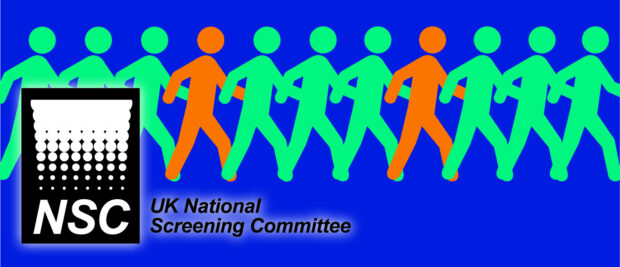The UK National Screening Committee (UK NSC) meets three times a year to consider the evidence on whether the UK countries should screen for more conditions. It makes recommendations to the governments of England, Northern Ireland, Scotland and Wales.

Recommendations usually get published 6 weeks after each UK NSC meeting to give enough time for ministers in each country to be briefed, though sometimes events outside of our control get in the way. This time round, the small fact of the general election on 7 May and the resulting “purdah” restrictions meant that we couldn’t publish the recommendations made at the meeting on 19 March until 9 June. Better late than never, though!
Recommending against a screening programme
Sometimes the UK NSC seems to make a number of positive recommendations in quick succession . Recently recommendations include expanding the NHS Newborn Blood Spot Screening Programme and introducing pulse oximetry testing to the NHS Newborn and Infant Physical Examination. But at the meeting on 19 March, the committee recommended against screening for five conditions. These were:
- bladder cancer
- adult depression
- amino acid metabolism disorders in newborn babies
- fatty acid oxidation disorders in newborn babies
- galactosaemia in newborn babies
Click on the links to download a recommendation statement for each condition – these are handy one page summaries explaining the key evidence.
In each case, the committee was guided by an external review of the latest evidence and the results of a public consultation. Recommendations are made based on the principle that screening must do more good than harm at the population level. This means that although an individual may have a bad experience of screening (for example by getting an inaccurate result), it needs to be shown that across everyone screened for a particular condition most people benefitted.
In the case of these five conditions, benefit to the wider population could not be clearly demonstrated. For example, the best current test for bladder cancer has a high false positive rate, meaning that many people would be told they might have cancer when in fact they don’t. And for galactosaemia screening would find babies with types of galactosaemia which may cause not harm. It also wasn’t clear that screening would be more beneficial than treating babies when they become ill.
Benefits and harms
Implementing a screening programme which isn’t supported by the evidence would waste public money that would be better spent in other ways – for instance in providing better treatment services, researching more accurate tests or helping GPs to make earlier diagnoses. They could also hurt significant numbers of people by providing unnecessary anxiety, false reassurance or encouraging them to get treatments they don’t need. Sometimes these treatments can have unpleasant or dangerous side effects.
So although we completely understand that some people will be disappointed when the UK NSC recommends against screening for a particular condition, we hope you can understand the careful considerations that contribute to each recommendation. And, of course, it’s important to remember that UK NSC recommendations aren’t set in stone forever. The evidence for each recommendation is usually reviewed again after three years. So if, for example, a better test has come along by then, it could be a whole different story next time round.
The UK NSC has since met again, on 18 June, and the recommendations from this meeting will be published at the end of July. We’ll talk about them in a future blog.